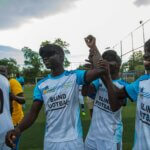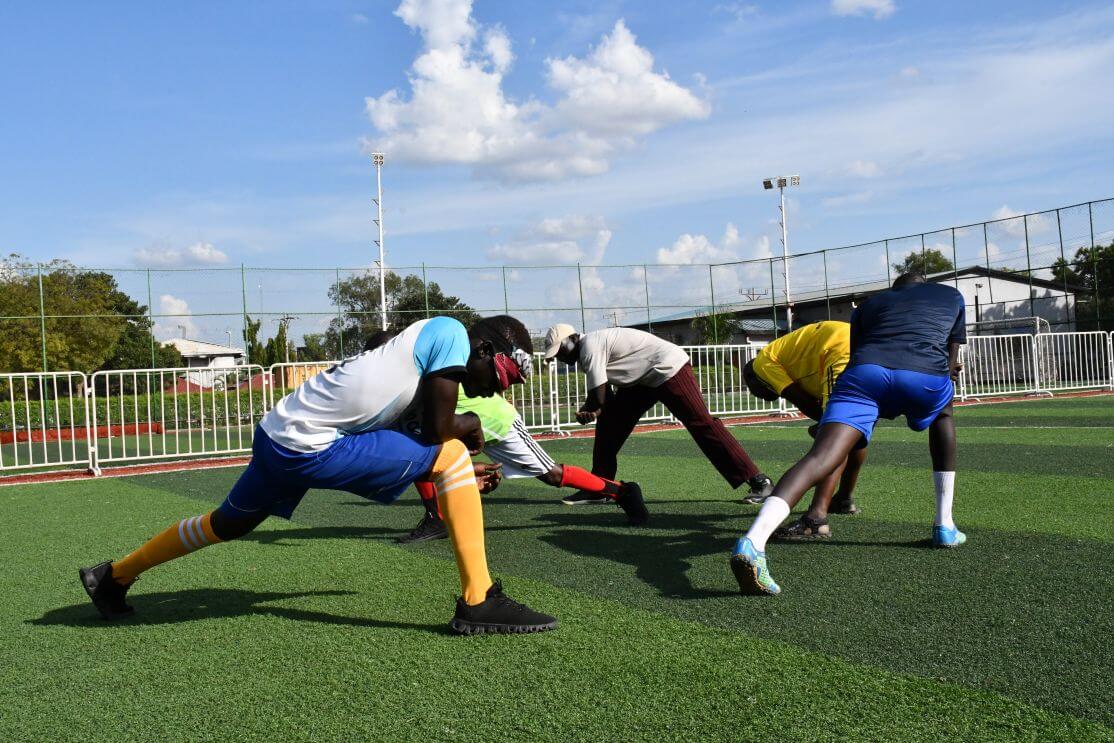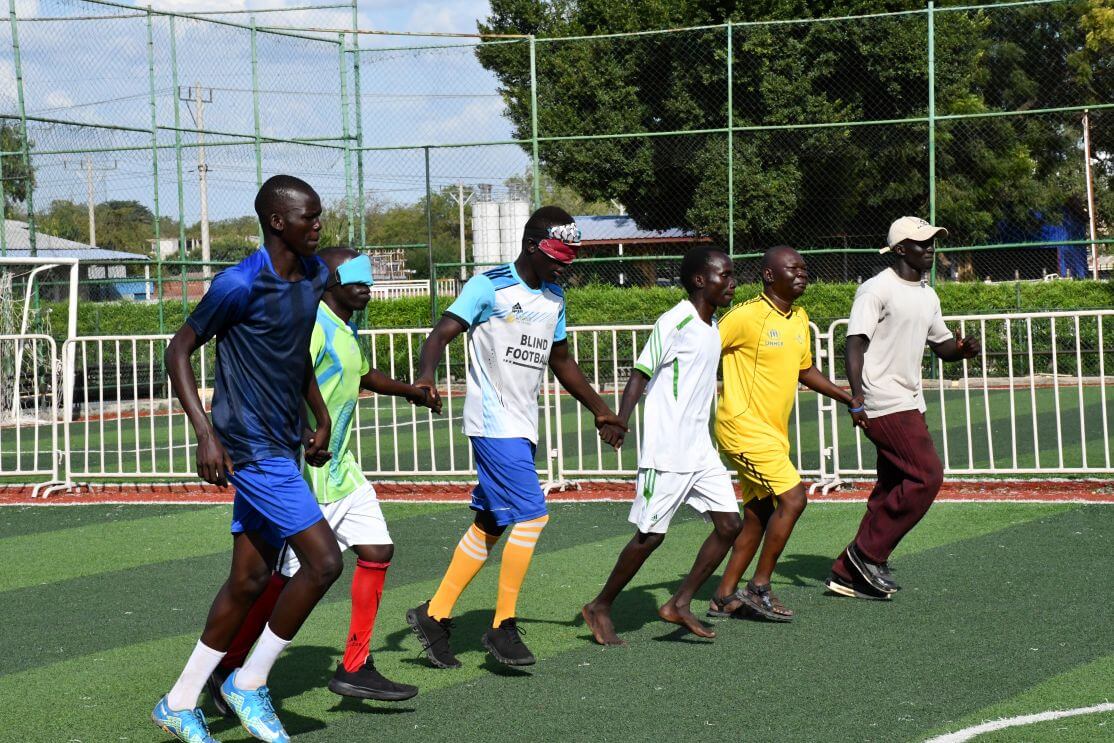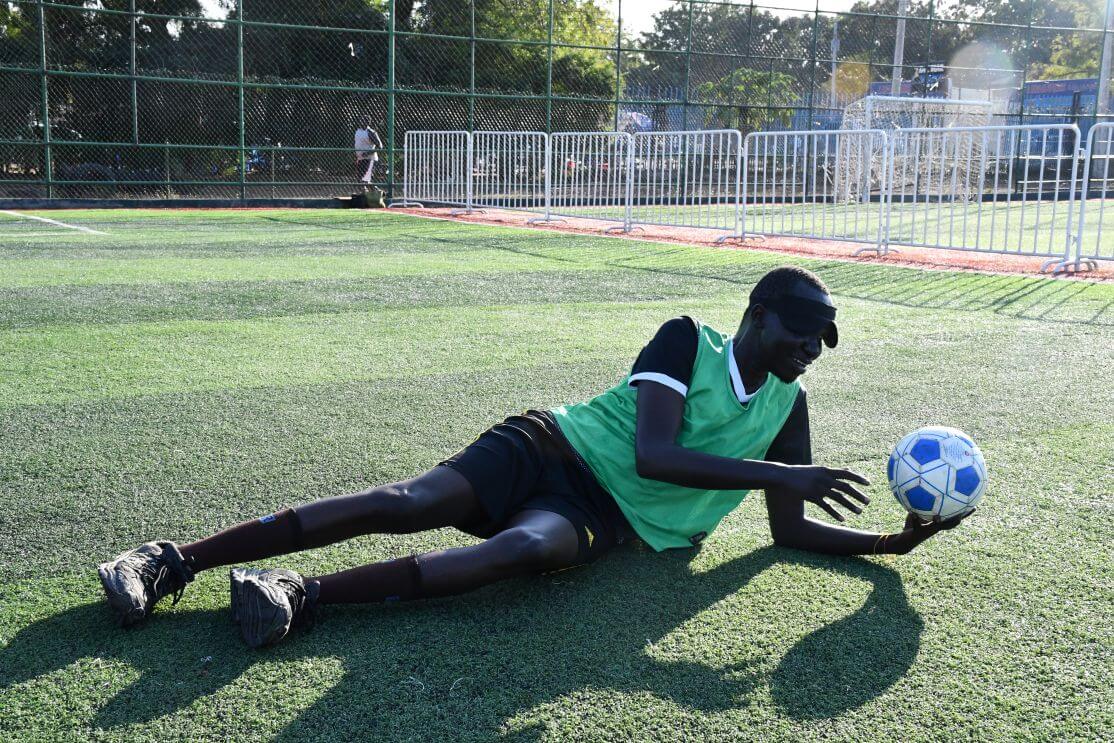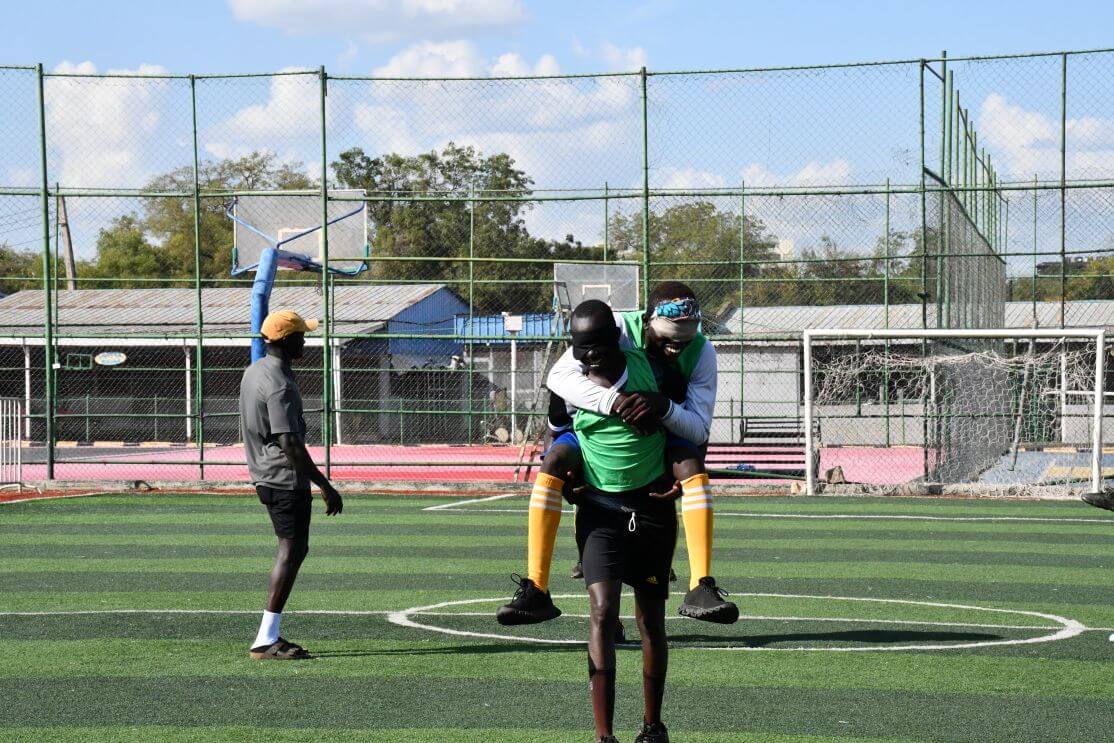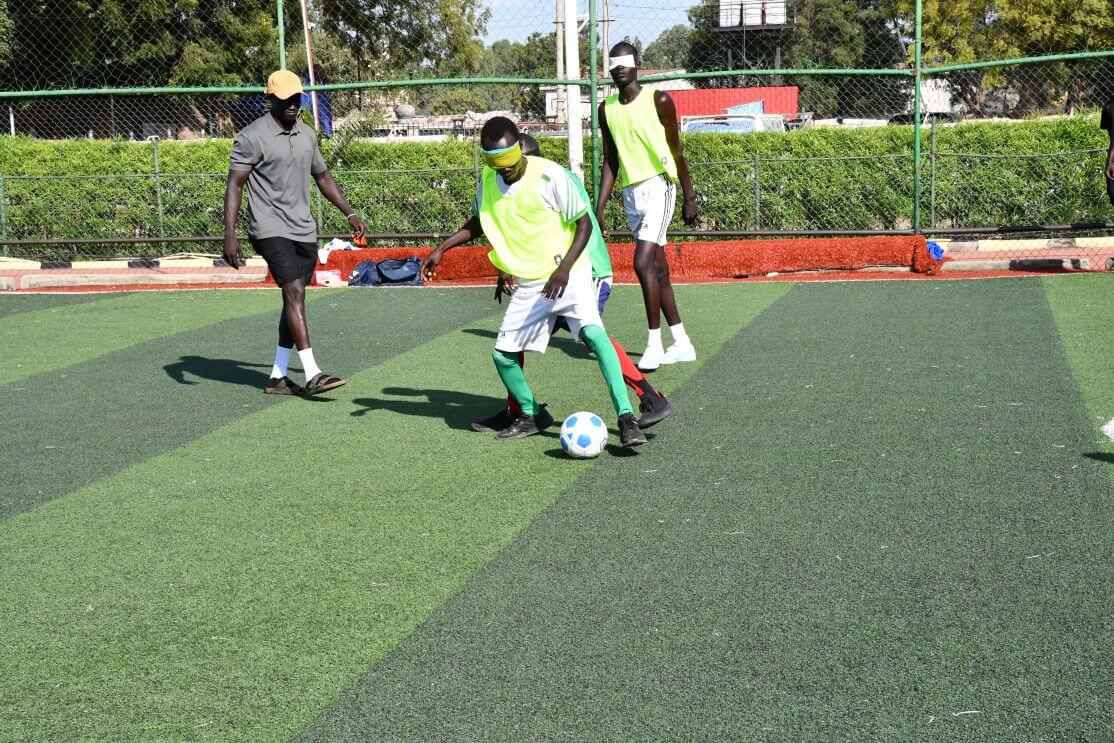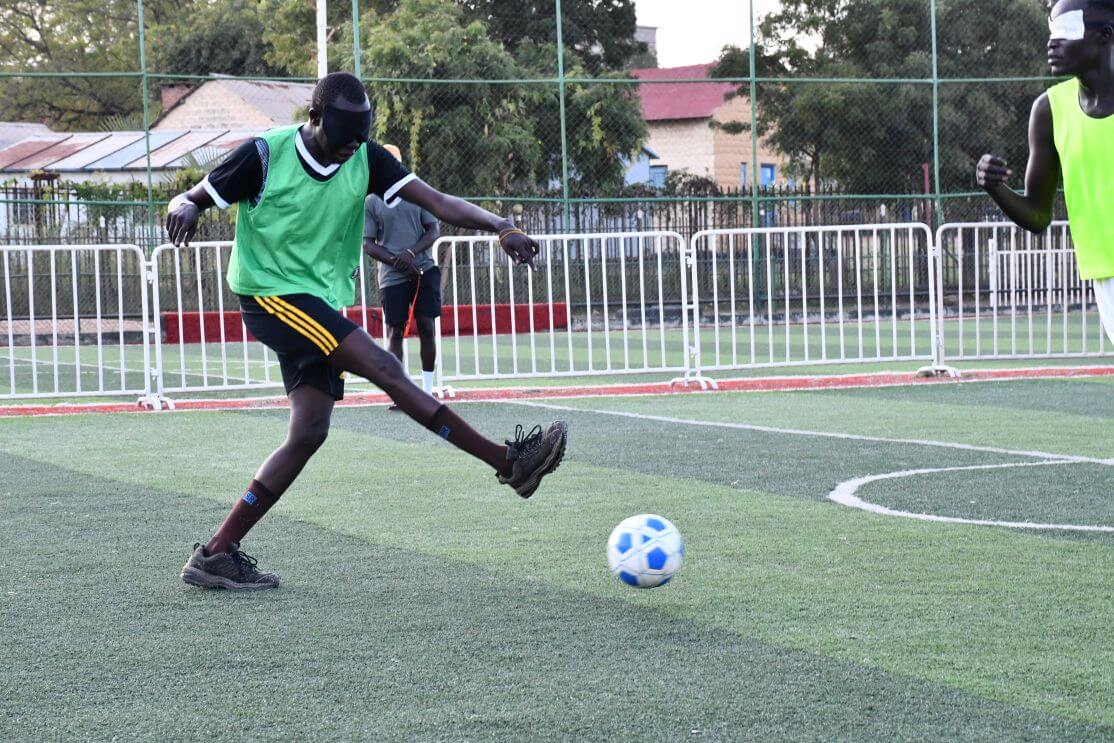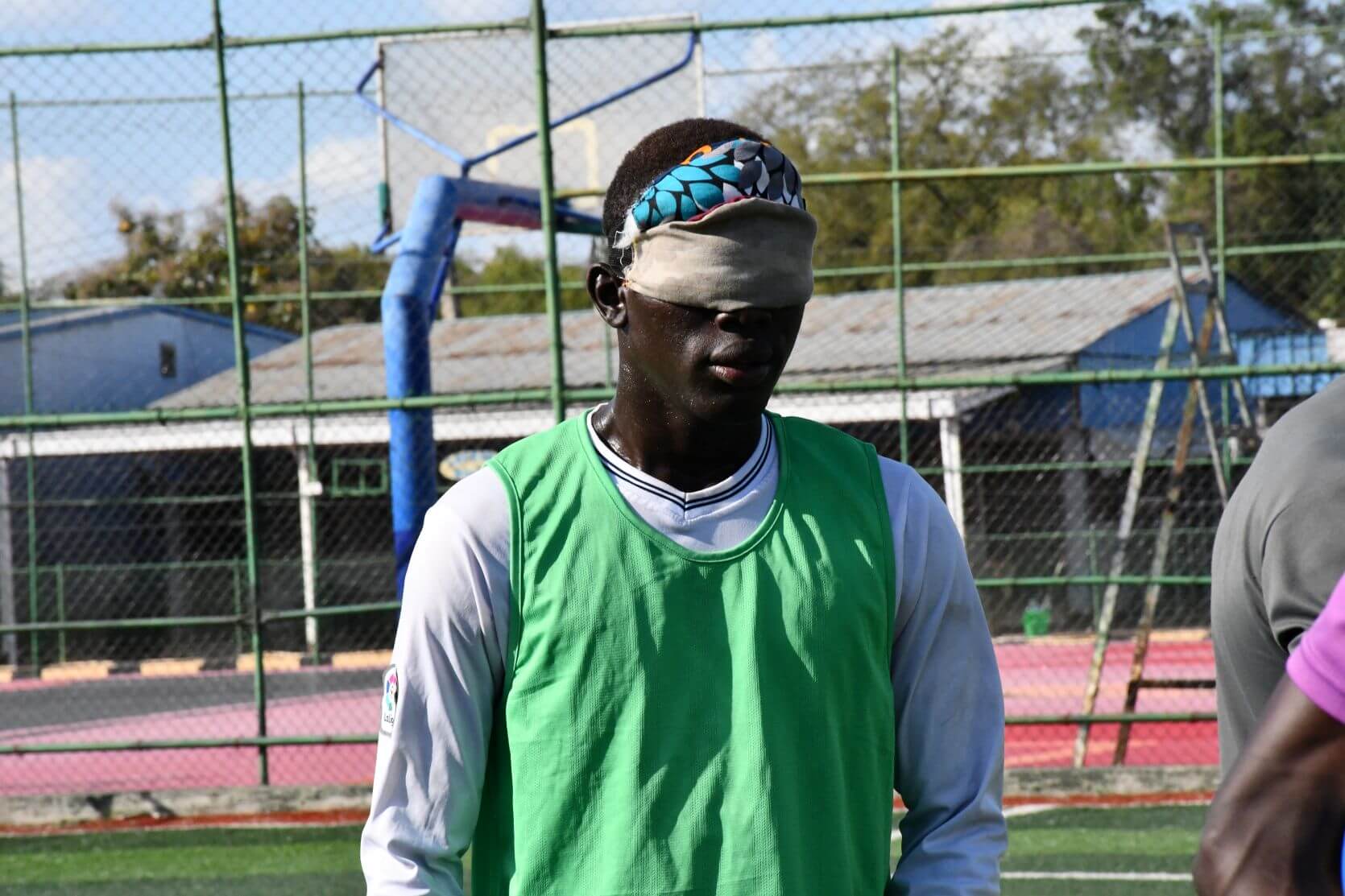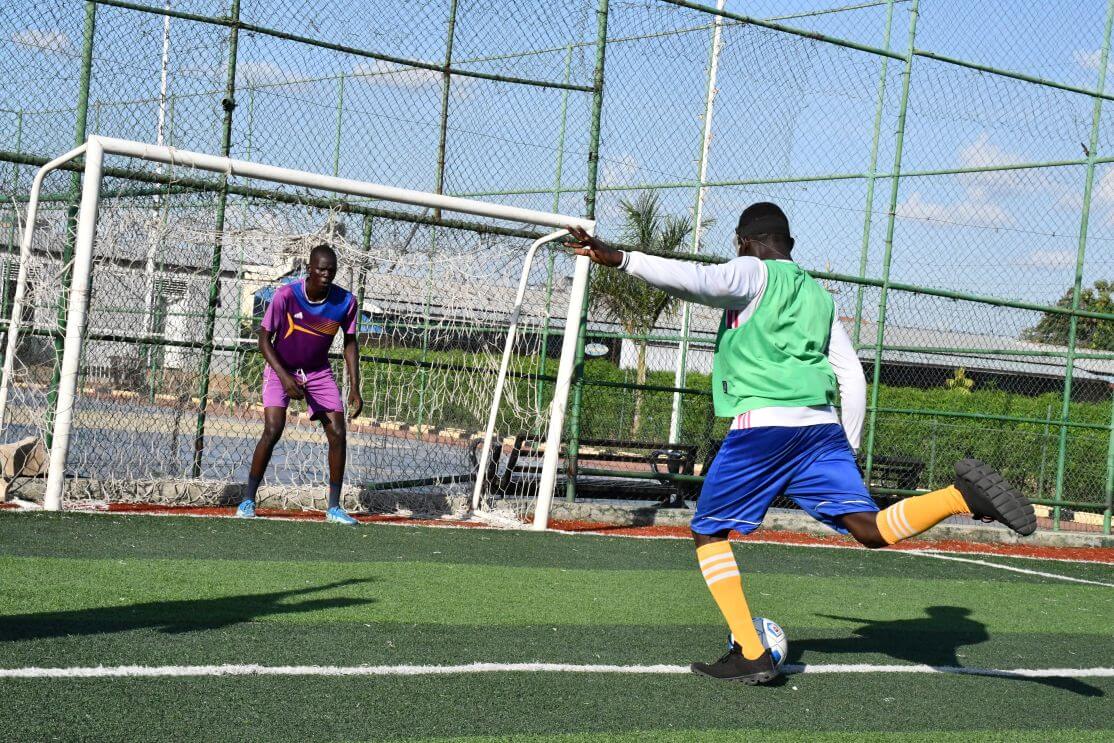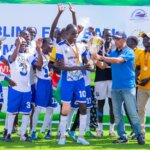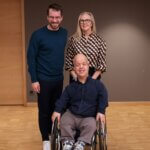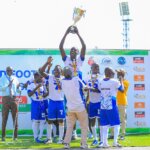- General
- Disability Rights
The trailblazing team, which is supported by Light for the World and the adidas Foundation, will play their first international matches at a continental tournament in Uganda.
South Sudan’s blind football players are set to make history — representing their country for the first time at the inaugural IBSA Blind Football African Championship Division 2.
The tournament, organised by the International Blind Sports Federation, will take place from 25-30 October in Kampala, Uganda.
South Sudan, known as the Bright Stars, are expected to face hosts Uganda and teams from Senegal and Zimbabwe in their first ever international matches. The top two teams will progress to Division 1 next year and move one step closer to a dream that once seemed impossible — qualifying for the 2028 Paralympic Games in Los Angeles.
Just five years ago, blind football didn’t exist in South Sudan. The sport began in the country in 2020 with just two players and a dream of forming a league. Today, more than 40 players compete in the a South Sudan Blind Football Premier League, which is challenging stereotypes about disability and expanding across the country.
Simon Madol Akol, Head Coach of the national team and a Disability Inclusion Facilitator at Light for the World, was the driving force behind introducing blind football in South Sudan.
“Since we started, it has always been a dream for us to play internationally and have a shot at reaching the Paralympics,” he says.
“The players say this is a national duty. They are excited to represent their country and they want support from the public. They want to make South Sudanese people proud.”
The team’s participation in the African Championship is led by South Sudan Association of Visually Impaired (SSAVI) in partnership with Light for the World and the adidas Foundation as part of the United by Sport programme. The three-year inclusive sports programme is tackling ethnic divisions, gender-based discrimination and ableism in South Sudan, while expanding the South Sudan Blind Football Premier League.
Blind football started in South Sudan under a Sports for Peace project, funded by UEFA Foundation and implemented by Light for the World.
From Juba to Kampala: meet the history makers
Yona Sabri Ellon, a 22-year-old who works as a volunteer in waste management, started playing blind football during the COVID-19 pandemic.
“It was challenging at that time as people’s perceptions of people with disabilities were not positive. Some people used to avoid us, thinking we were going to beg for something. All we wanted was to play sports because it united us and helped us pursue our dreams,” he says.
“I always had hope and believed that I would make it one day. This is my time now to represent my country, South Sudan.”
Speaking at a training camp in Juba to prepare for the tournament, Yona, who plays as a striker, says the team is confident ahead of their international debut.
“As a visually impaired player, I am very proud and honoured to represent South Sudan. This shows the world that South Sudan has inclusive sports, regardless of disability,” he says.
“I believe in my teammates. Our trip to Kampala is not just to participate, but to compete as a team with a winning mentality and bring the trophy back home.”
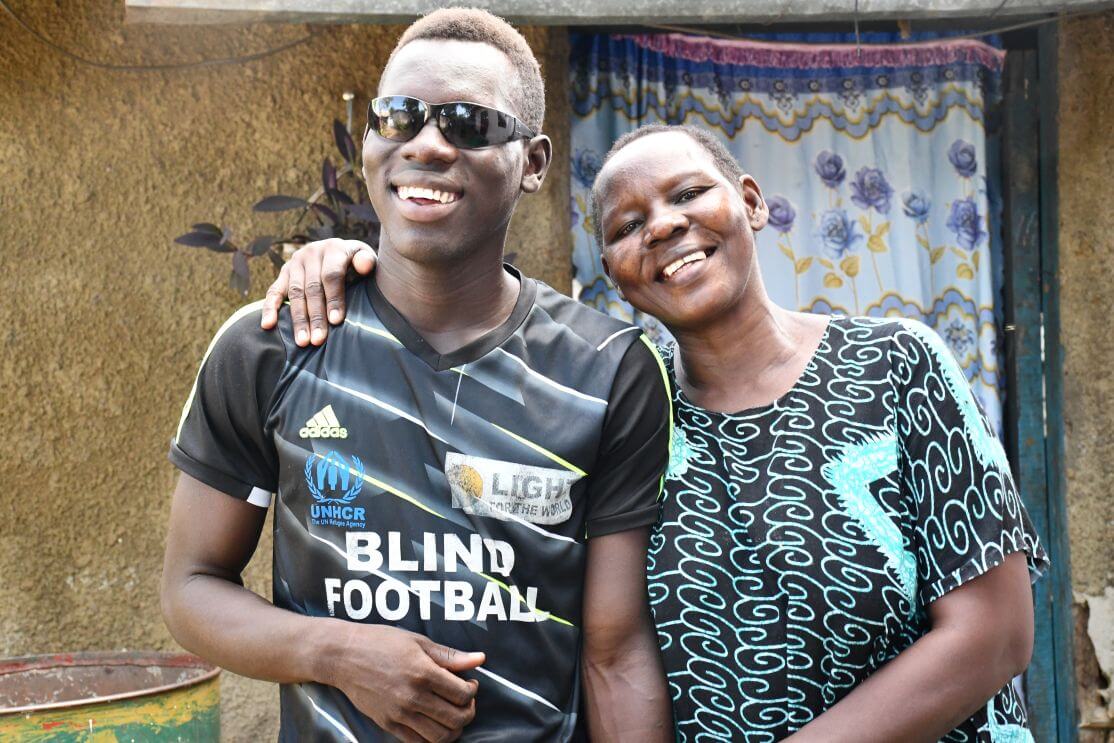
Alison Christopher, a 31-year-old who is studying rural development at Upper Nile University, says the growth of blind football in South Sudan is changing perceptions of people with disabilities in the world’s youngest nation.
“It has created a positive impact. The reason I joined blind football is I wanted to draw the attention of our people in society to know that people with disabilities have different talents,” Alison, who is a defender, says.
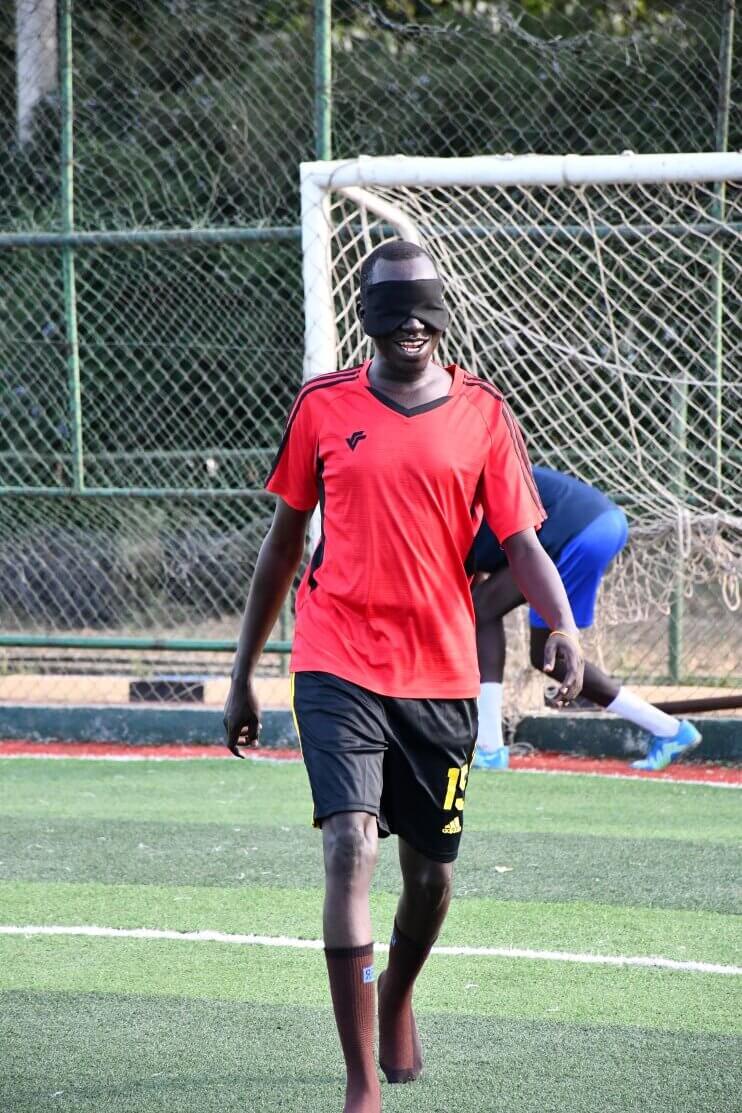
Charles Pasquali, Chairman of South Sudan Blind Football, says the sport has increased respect for people with disabilities. Charles works as a legal inclusion advocate in both civial and criminal cases.
“Initially, people in my area had a negative perception towards individuals with disabilities,” he says.
“When I told them I was joining the blind football team, they laughed and doubted my ability to play because of my visual impairment. But now, they have seen me play and their perception has changed.”
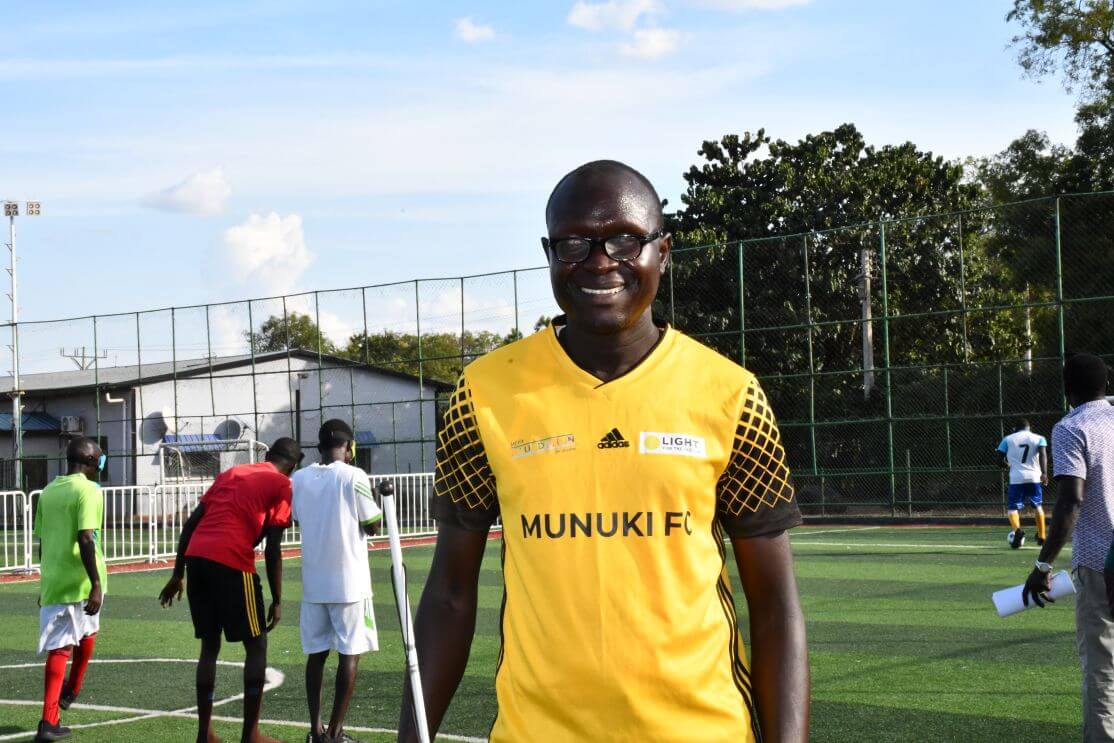
Making history, promoting unity
As the Bright Stars prepare for their 16-hour journey to Kampala, their focus goes beyond football.
“Our country has been facing challenges, and sport is a way to bring people together. We are all from different parts of South Sudan, but in this team we are like brothers — a family. This is the spirit we are trying to spread,” Simon Madol Akol says.
“The players are showing you can see someone beyond their disability. Everybody can contribute, regardless of disability or where they are from.”
Cheer on the Bright Stars as they make history: follow their journey at the African Championship on Light for the World’s social media. If you’re in Kampala, come along and support them in person. Entry to all matches is free.
Blind football fast facts
- Blind football debuted at the 2004 Paralympics — France are the current Paralympic champions
- Each team has five players: four outfield players and a goalkeeper. The outfield players must be classified as blind, while goalkeepers may be sighted or partially sighted
- The ball has sewn-in rattles or bells, so it makes noise while moving
- Matches are 40 minutes long, played in two 20-minute halves
- Players shout “voy” (“I’m coming” in Spanish) when making a tackle to warn opponents and minimise injuries
